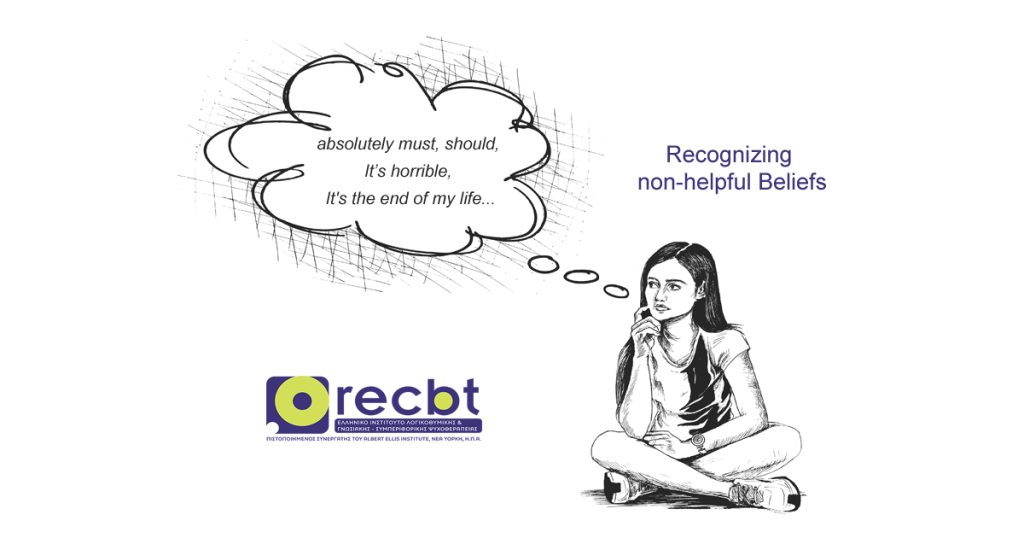People and situations do not upset us.
Instead, the beliefs and the evaluations we hold about people and situations upset us.
According to the REBT model, when people experience undesirable events, they either form non-helpful, irrational beliefs, or they form helpful, rational beliefs. These non-helpful, irrational beliefs lead to emotional disturbance and specifically to various emotional, behavioral, and cognitive consequences, which are:
Demandingness
Demands are unrealistic, rigid, and absolute expectations from events or people, and they are often recognizable by words such as “absolutely must,” “should,” “need to absolutely,” etc. REBT distinguishes between a person’s desires and rigid demands. Desires do not cause disturbance. However, when we demand that our desires always come true, and we do not adopt a flexible way of thinking and behaving when there is a mismatch between expectations and reality, and we feel emotionally disturbed.
Catastrophizing
Catastrophic beliefs are characterized by exaggerated negative, unrealistic thoughts about the consequences of a possible or nonexistent event. They can be recognized by phrases like: “It’s horrible/ awful,” “It’s the end of my life/my world,” etc. Usually, when there is uncertainty about the outcome of an important event, we tend to think that it will be extremely bad. Helpful thoughts recognize that an undesirable event may be quite bad, but emphasize the person’s ability to survive. In contrast, catastrophic non-helpful thoughts deprive the person of the perspective on how—if they can’t eliminate the problem—they can at least effectively manage its consequences.
Intolerance to Frustration
Beliefs of low tolerance to frustration stem from demands for ease and comfort and reflect an intolerance for discomfort. They are primarily recognizable by the expression “I can’t stand it.” These beliefs are non-helpful because they eliminate our courage, endurance, and often conceal negative perceptions of the person’s own abilities and strength to continue struggling and trying despite disappointments and pain, which we all will encounter along our path.
Devaluation of Self/ Others/Life
These beliefs involve general evaluations and imply that some people, or even ourselves, are useless, or at least less important than others. These beliefs about human worthlessness cannot be true, let alone helpful, because a person cannot be rated as entirely good or bad, as it is impossible for someone to be wholly good or bad due to the complexity of human beings. Instead, evaluations should be limited to people’s behaviors, which can be either modified or improved, without unfairly global labeling the individual.

